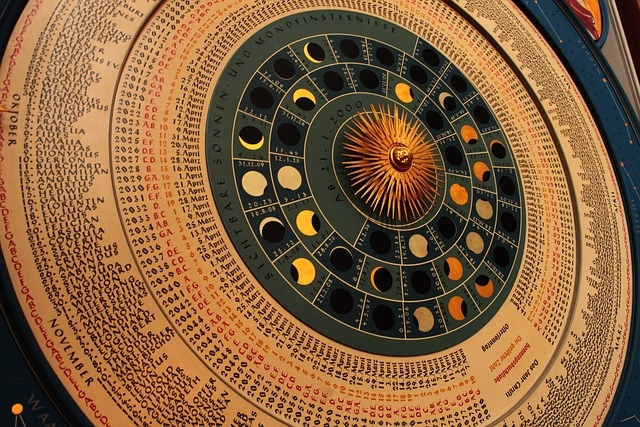The Power of the Moon: Lunar Phases and Your Horoscope
The Role of Planets in Your Horoscope
The Basics of Astrology and Planets
In astrology, the sky is divided into twelve segments known as houses, and each house corresponds to different areas of life, such as career, relationships, and home. The planets move through these houses, and their positions at the moment of your birth are mapped in a natal chart or horoscope. This chart serves as a celestial blueprint, offering a snapshot of the heavens and how their energies imprint on your life.
The Sun and the Moon: The Luminaries
Before exploring the other planets, it's essential to understand the two most influential celestial bodies in astrology: the Sun and the Moon, often referred to as the luminaries.
The Sun
- Role: Represents your core identity, ego, and vitality.
- Influence: The Sun sign is what most people refer to as their "zodiac sign" and is a central part of your astrological identity. It governs your will, sense of purpose, and the way you express yourself.
- Cycle: Takes approximately one month to transit each sign, completing a full cycle in a year.
The Moon
- Role: Symbolizes your emotions, instincts, and subconscious mind.
- Influence: The Moon sign reflects your inner self, emotional responses, and how you find comfort and security. It plays a crucial role in shaping your emotional landscape and personal habits.
- Cycle: Moves through each sign in about 2.5 days, completing a cycle in roughly 29.5 days.
The Personal Planets
The personal planets—Mercury, Venus, and Mars—have a direct impact on your personality and day-to-day behaviors.
Mercury
- Role: Governs communication, intellect, and reasoning.
- Influence: Mercury's placement in your chart affects how you think, process information, and express yourself. It also influences your learning style and decision-making processes.
- Cycle: Takes about 88 days to orbit the Sun, spending around three weeks in each sign.
Venus
- Role: Rules love, beauty, and attraction.
- Influence: Venus dictates your approach to relationships, aesthetic preferences, and values. Its placement reveals how you give and receive love and what you find pleasing and attractive.
- Cycle: Orbits the Sun in approximately 225 days, spending about a month in each sign.
Mars
- Role: Represents drive, aggression, and physical energy.
- Influence: Mars affects your ambition, motivation, and how you assert yourself. It also governs your sexual desires and how you handle conflict.
- Cycle: Completes its orbit around the Sun in about 687 days, staying in each sign for around six weeks.
The Social Planets
The social planets, Jupiter and Saturn, influence your societal roles and broader life patterns.
Jupiter
- Role: Symbolizes growth, luck, and expansion.
- Influence: Jupiter's position in your chart indicates areas where you are likely to experience success, abundance, and personal growth. It reflects your philosophical beliefs and how you seek wisdom and understanding.
- Cycle: Takes about 12 years to complete one orbit, spending approximately one year in each sign.
Saturn
- Role: Represents structure, discipline, and responsibility.
- Influence: Saturn's placement highlights your challenges, limitations, and areas requiring hard work and perseverance. It is often associated with life's lessons and karmic responsibilities.
- Cycle: Completes an orbit in about 29.5 years, spending around 2.5 years in each sign.
The Outer Planets
The outer planets—Uranus, Neptune, and Pluto—move more slowly and influence generational changes and collective experiences. Their impact is more subtle and profound, shaping the underlying currents of society and individual transformation.
Uranus
- Role: Governs innovation, rebellion, and sudden change.
- Influence: Uranus' position in your chart indicates where you seek freedom, originality, and unconventionality. It can bring unexpected events and disruptions that push you towards new directions.
- Cycle: Takes about 84 years to orbit the Sun, spending roughly seven years in each sign.
Neptune
- Role: Represents dreams, intuition, and spirituality.
- Influence: Neptune influences your imagination, ideals, and spiritual inclinations. Its placement can reveal your artistic talents, fantasies, and areas where you may experience confusion or illusion.
- Cycle: Completes its orbit in about 165 years, spending around 14 years in each sign.
Pluto
- Role: Symbolizes transformation, power, and regeneration.
- Influence: Pluto's position signifies deep psychological changes, power struggles, and processes of rebirth. It highlights areas where you must undergo significant transformation and healing.
- Cycle: Takes approximately 248 years to orbit the Sun, spending anywhere from 12 to 31 years in each sign due to its elliptical orbit.
Understanding Planetary Aspects
In addition to their positions in the zodiac signs and houses, the relationships between planets, known as aspects, play a crucial role in astrology. Aspects occur when planets form specific angles to each other, influencing how their energies interact. Major aspects include:
- Conjunction (0°): When two planets are close together, their energies merge, intensifying their influence.
- Sextile (60°): A harmonious aspect that promotes cooperation and opportunity.
- Square (90°): A challenging aspect that creates tension and prompts action.
- Trine (120°): A favorable aspect that facilitates ease and flow.
- Opposition (180°): An aspect of balance and conflict, where opposing forces must find compromise.
Practical Application: How to Read Your Horoscope
To read your horoscope and understand the planetary influences, you'll need to know your natal chart, which requires your birth date, time, and location. Here are some steps to get started:
- Generate Your Natal Chart: Use an online astrology tool or consult an astrologer to create your natal chart.
- Identify Planetary Positions: Note the signs and houses where each planet is located.
- Interpret Planetary Roles: Consider the role of each planet and how its sign and house placement influence various aspects of your life.
- Analyze Aspects: Examine the aspects between planets to understand how their energies interact and impact you.
- Synthesize Information: Combine all these elements to get a comprehensive view of your astrological profile.
Conclusion
The role of planets in your horoscope is a fundamental aspect of astrology that offers profound insights into your personality, life experiences, and destiny. Each planet, from the fast-moving personal planets to the slow-moving outer planets, contributes to the intricate tapestry of your astrological profile. By understanding the significance of these celestial bodies and their interactions, you can gain a deeper awareness of yourself and navigate your life with greater clarity and purpose. Whether you are seeking to understand your emotional tendencies, uncover your life’s challenges, or explore your spiritual path, the planets in your horoscope serve as celestial guides illuminating your journey.


